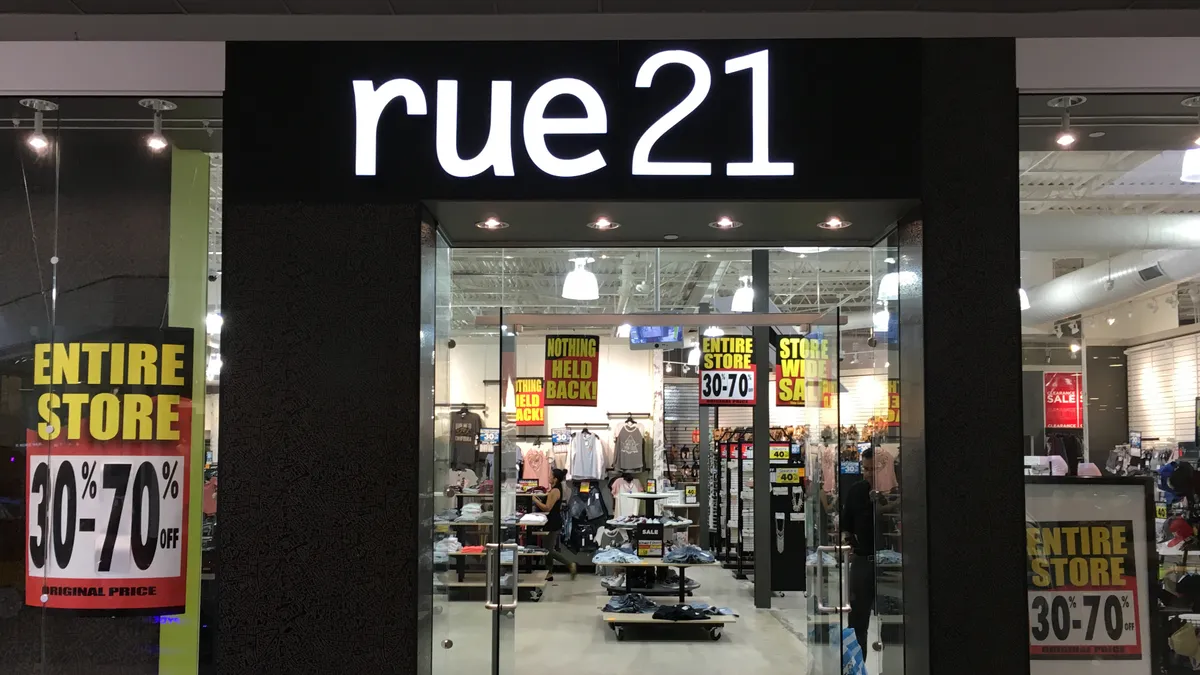Dive Brief:
-
Rue21 on Thursday filed for Chapter 11 in the U.S. Bankruptcy Court for the District of Delaware, its third bankruptcy filing in a little over two decades.
-
The apparel retailer has started the process of closing all 540-plus stores, according to court documents. As of press time, its website is not operating, indicating only that it’s being updated.
-
The apparel retailer emerged from bankruptcy seven years ago with 420 fewer stores. In 2002, doing business under its original name, “Pennsylvania Fashions,” the company also reorganized under Chapter 11.
Dive Insight:
Last year Rue21 hired a new CEO, former GNC chief executive Josh Burris, who garnered apparel retail experience from stints at Abercrombie & Fitch, Hollister, DKNY, Karl Lagerfeld Paris, Calvin Klein Performance, Wilsons Leather and GH Bass & Co, among others.
Before his arrival, and still at the peak of the pandemic when many retailers were downsizing, Rue21 began to expand its store fleet. At the time, the company pointed to sales trends that it said were outpacing the broader apparel market.
In court documents Thursday, the retailer painted a different picture, saying it has “recently suffered operational losses stemming from, among other things, underperforming retail locations, the continued growth of online shopping and industry competition, inflation and macroeconomic headwinds, and difficulties raising capital in an amount sufficient to meet their liquidity needs and fund operations.”
The company has assets of between $100 million and $500 million, and liabilities in the same range, according to its voluntary petition to the bankruptcy court.
Months ago, Rue21 and its advisers began to explore restructuring options and a possible sale, per the documents. But they realized that store closure sales and liquidation of store closure assets was likely to be at least as lucrative as a sale of its assets, according to the filing.
Rue21 also plans to pursue a sale of assets that won’t be sold through its store-closing process and anticipates entry “into a stalking horse purchase agreement,” the company said in documents. Store closing sales and the going-concern sale are both scheduled to close in the next four to six weeks.
The company has stumbled at a time when apparel sales have posted year-over-year gains each month of the first quarter, as consumers came through with surprisingly robust discretionary spending. However, some analysts warn that spending may be propped by the use of credit cards and buy now, pay later plans, setting retail up for a downslide some time this year or next.














